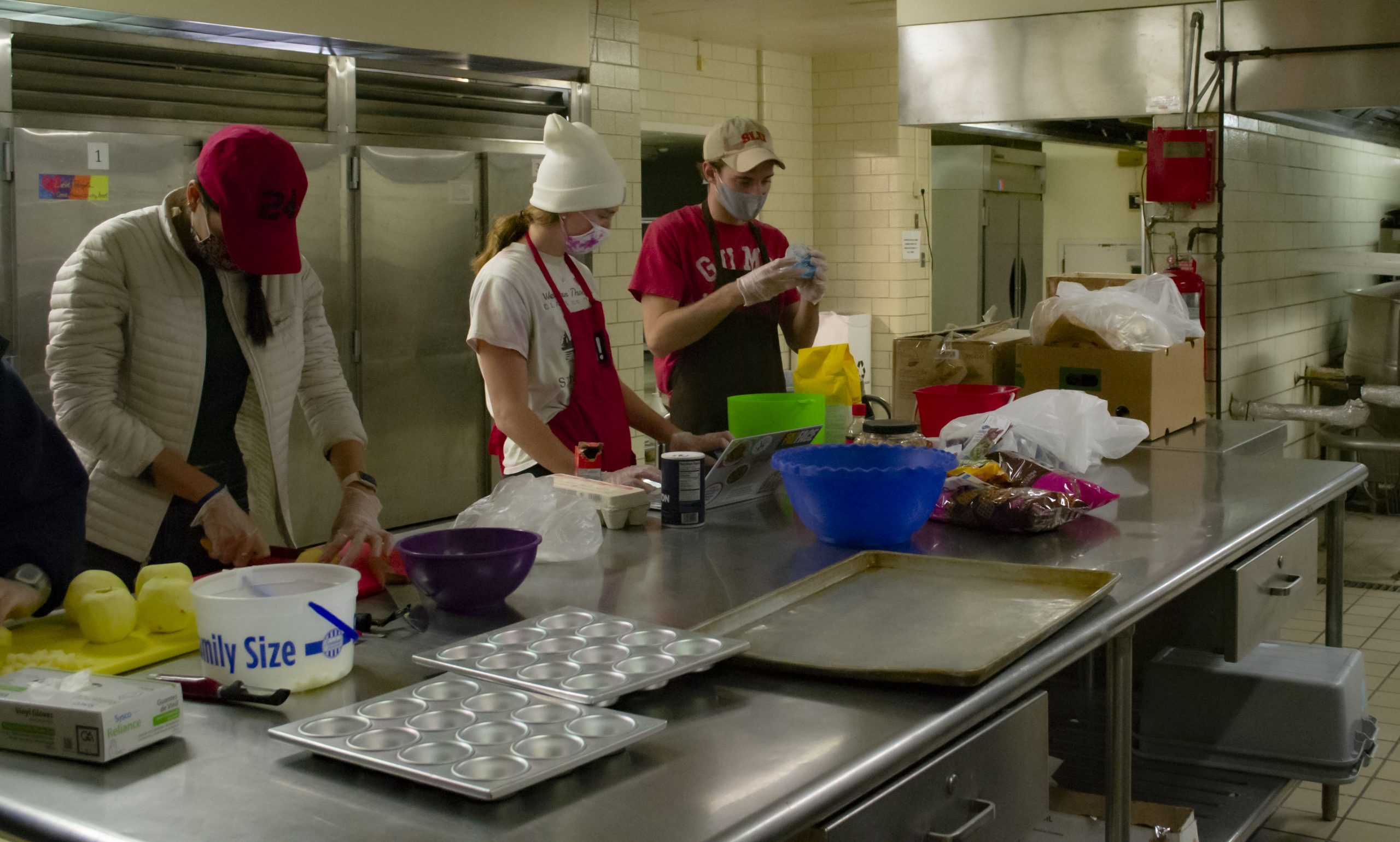Adapting Amidst a Pandemic – The Campus Kitchens Project
The Campus Kitchens Project (CKP) has always been a student powered organization with two goals: to relieve food insecurity and to reduce food waste. What a lot of students do not realize is just how much the local community relies on our organization. Most of us SLU students come from very fortunate backgrounds, never experiencing any form of food insecurity. Until I joined CKP, I was not made aware of the food insecurity people are experiencing just outside our bubble of a campus. There’s no doubt of the importance of our organization.
That being said, how does an organization that serves sit-down meals continue helping those in need while still abiding to all the public health regulations?
Of course, there are a few obvious changes that we had to make, such as switching to a to-go meal rather than a sit-down, and only allowing a maximum of six people in the kitchen at a time. However, the answer to this question is much more complicated than the basic changes made to the meal itself. We first need to understand how the community was affected by COVID. Something that is very interesting to me is the large increase in meals that we have taken on this semester. Before COVID, we usually served about 30-35 people every week. This semester, we’ve taken on many more meals, now serving 70-80 people every week.
So how did the pandemic cause such a dramatic increase in meals?
To answer this question, I asked one of CKP’s co-presidents, Stephanie Lioudis. “I think we’ve taken on more meals this semester because of the economic downturn due to the pandemic, which created a greater need in the community. Also, doing meals as takeaway and delivery is more accessible for some people, since not everyone has the means to get to a sit-down meal.”
The large increase in meals is not the only hindrance Campus Kitchens has had to overcome amidst COVID. As one of the goals of Campus Kitchens is to reduce food waste, our meals are made largely from donations of food that would otherwise be thrown out. Unfortunately, this semester we receive significantly fewer donations than we have before COVID.
So then why have we been receiving fewer donations this semester?
To answer this question, I decided to ask our other co-president, Clara Pollard. “In the past we received a lot of donations from local grocery stores. The grocery stores would restock their shelves and throw away perfectly good food that have almost reached their expiration date, and we would receive that surplus of food. However, due to COVID, many grocery stores have been experiencing low inventory of certain foods, and some, like Aldi, have temporarily closed. Now, I think grocery stores are sending less food to landfills and keeping items on shelves longer because supplies are limited, so they have less food to donate to us.”
This lack of donations, coupled with the amount of meals we’ve had to take on this semester, is not an ideal situation for our small student-powered organization. In fact, it is not like anything CKP has ever experienced before.
So how have we been able to function so far this semester?
According to our organization’s advisor, Ashlee Downing, “I think CKP has been able to function because of a dedicated and compassionate group of students that work creatively to meet the needs of the local community. The UU church continues to allow us to use their space. Local churches help provide donations etc. It takes a whole community to come together to help some of the most vulnerable.”
If you would like to volunteer with us, here are our shifts!
Sunday 2-4pm: Prepare and cook certain aspects of meal
Monday 2:30-5pm: Cook & package the meal
4:30-6pm: Serve & delivery
4:45-5:45pm: Dishes: Clean the dishes from cook
Tuesday 5:30-7pm: Bearpacks



